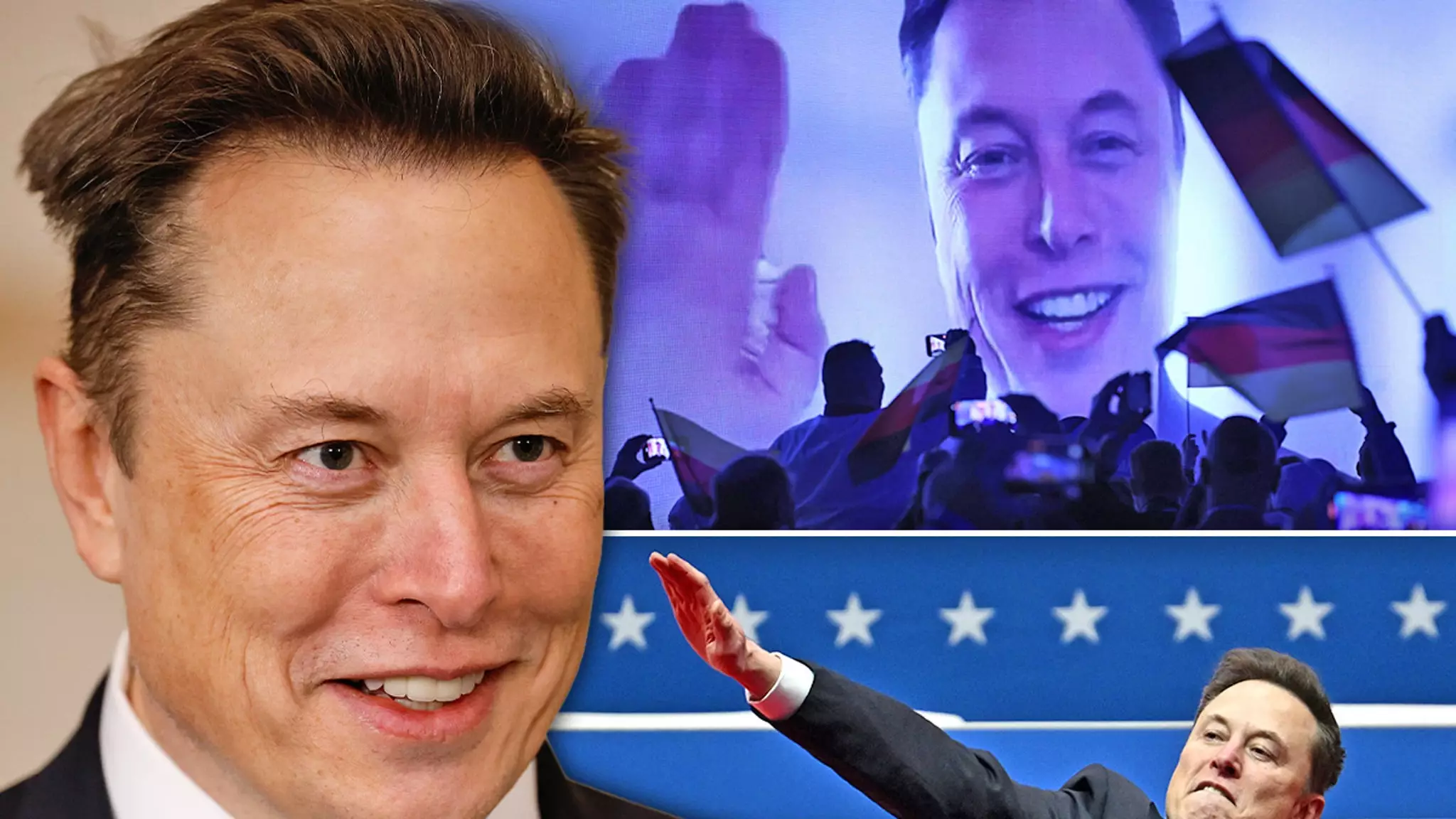In a recent and unexpected turn of events, Elon Musk delivered a controversial speech to members of the Alternative for Germany (AfD) party, a far-right political organization known for its nationalist rhetoric. Musk’s remarks, which encouraged Germans to embrace their cultural heritage while shedding feelings of guilt associated with their past, have sparked intense debate and drawn comparisons to sensitive historical issues. This article delves into the implications of Musk’s statements, the potential motivations behind them, and the polarization they have elicited within public discourse.
Musk’s core message during his address revolved around fostering pride in German identity and culture. He posited that the German populace should no longer feel stigmatized by historical events, specifically hinting at the deeply troubling legacy of the Holocaust. By advocating for a dismissal of guilt tied to such events, Musk risks trivializing a period that demands remembrance and reflection. The call to abandon guilt can potentially undermine the efforts of many in Germany and beyond who strive to learn from the past and prevent the recurrence of such atrocities.
Moreover, Musk’s emphasis on cultural preservation in the face of globalization invites scrutiny. He implied that, through immigration and multiculturalism, Germany could lose its distinct cultural identity, a notion that resonates with the AfD’s anti-immigrant stance. While safeguarding a nation’s cultural uniqueness is a valid concern, it must be approached with caution, lest it fuel divisive ideologies that disenfranchise minority groups and diminish societal cohesion.
The reception of Musk’s speech has been predictably polarized. Supporters within the AfD applauded his commentary on multiculturalism, viewing it as a validation of their own beliefs regarding immigration and national identity. Conversely, critics have reacted vehemently, accusing Musk of echoing far-right sentiments and aligning himself with historical revisionism. Notably, Musk’s previous public gestures have led to accusations of Nazi sympathies, complicating his image further and leading many to question his motivations.
This turbulent backdrop reveals a broader dichotomy in contemporary political discourse, where figures like Musk can unwittingly become emblematic of larger ideological battles. Such instances often highlight how nuanced discussions about culture and identity can quickly devolve into accusations and entrenched positions.
Elon Musk’s address to the AfD has illuminated critical issues regarding national identity, guilt, and cultural preservation. While the promotion of cultural pride is essential, it is equally crucial to balance this with an acknowledgment of historical realities and the complexities surrounding them. The dialogue initiated by Musk, albeit fraught with controversy, emphasizes the need for a thoughtful approach to discussions on culture and morality, reminding us of the delicate balance between pride in heritage and the responsibility to remember and learn from history. As society continues to grapple with these themes, voices like Musk’s will invariably stir debate, serving as both platforms for discourse and lenses through which we examine our collective past.

Leave a Reply